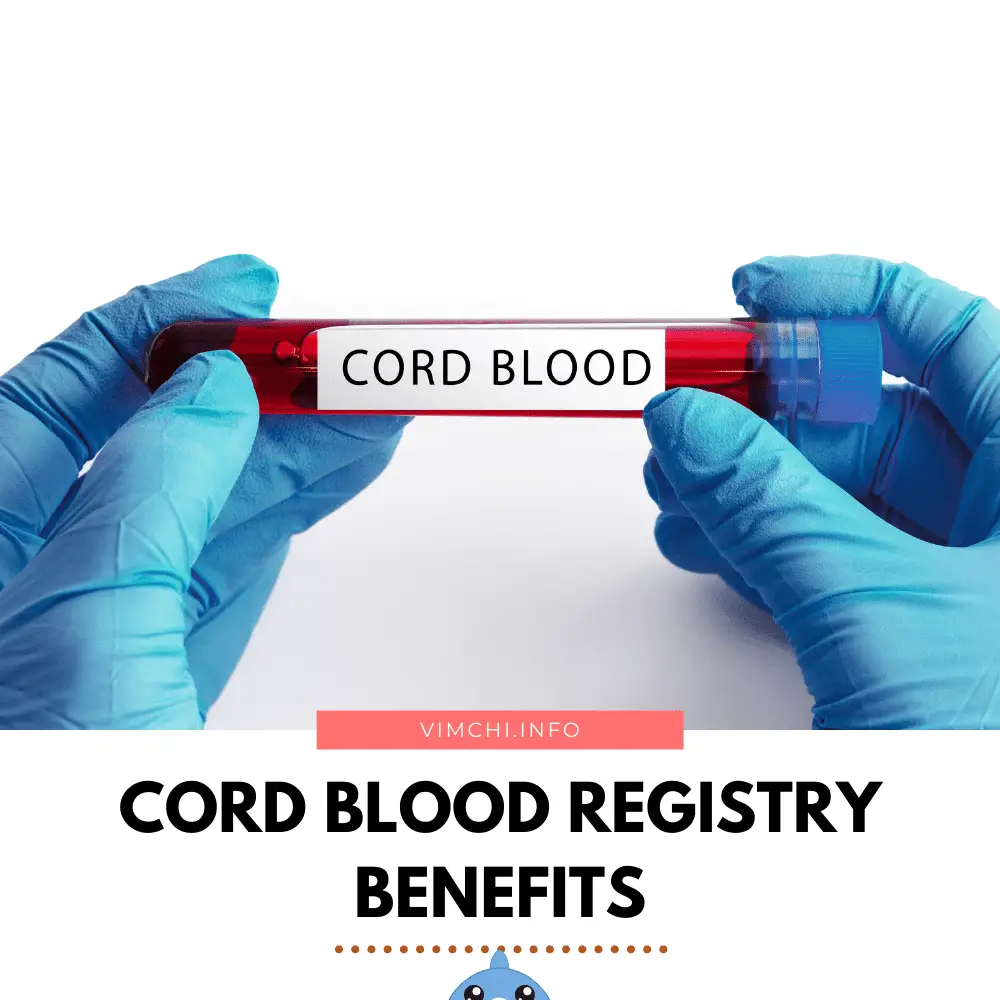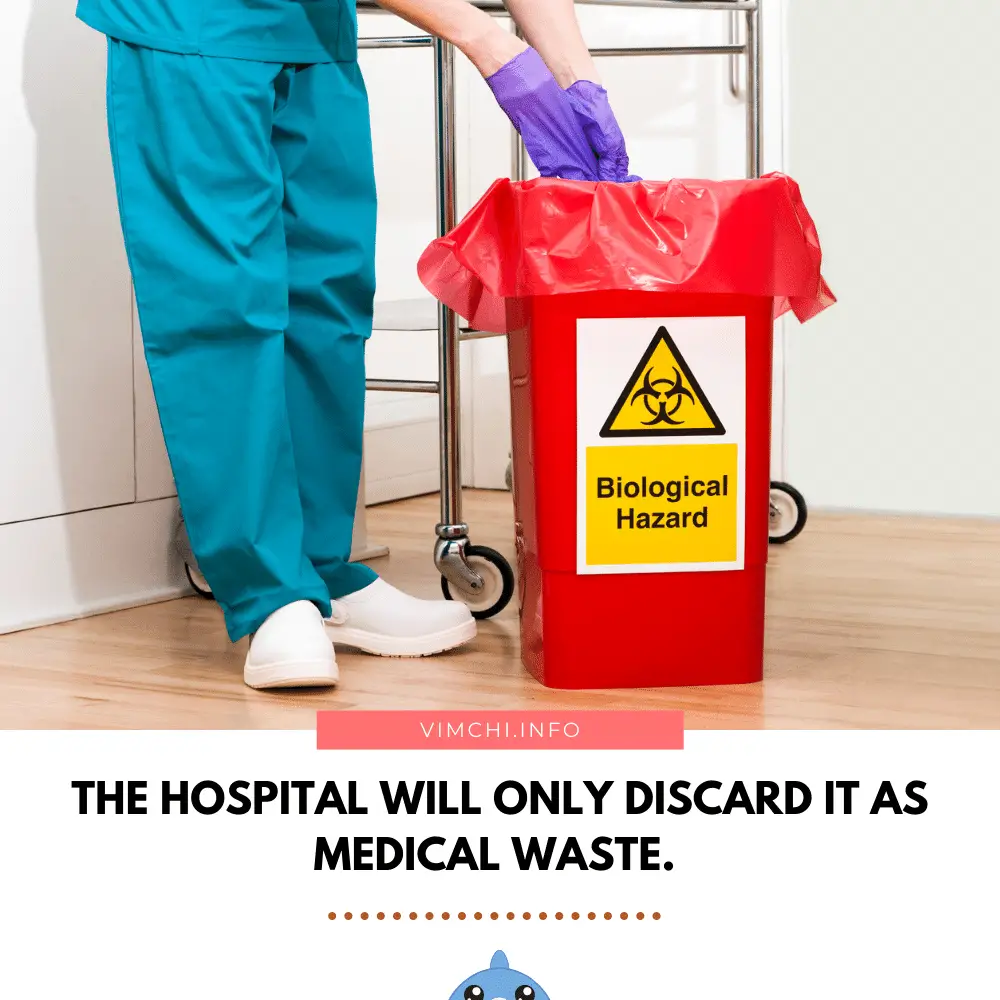Are cord blood registry benefits enough to invest in saving your baby’s umbilical cord? Let’s find out here.

Cord Blood Registry Benefits
A cord blood registry lets you store the umbilical cord in a private cord blood bank. The CB can be used by the donor and family members only.
Here are the reasons many would opt to save their baby’s cord blood.
- Anyone can receive stem cells coming from cord blood. The cord blood doesn’t need to match the person receiving the transplant. It’s not like a bone marrow transplant.
- Less chance of the recipient’s body rejecting stem cells compared to bone marrow’s stem cells.
- The stem cells from cord blood may support the immune function of the person undergoing cancer treatments.
- Cord blood collection is less complicated than collecting bone marrow.
- There’s no risk to the newborn when cord blood collection is done.
- Saving cord blood to banks allows the blood to be frozen and stored for future use.
Read: Cord Blood Registry Pros and Cons
Unfortunately, cord blood isn’t a miracle cure. Here are some reasons you might not want to invest in a cord blood registry.
- There’s a fee for storing cord blood in a private blood bank. Expect to pay around $125 a year.
- You’ll have to pay for cord blood collection. The cost can be several hundred dollars.
- You need to plan and decide to save your cord blood a few weeks before childbirth.
- Not all hospitals offer cord blood collection
Do Doctors Recommend Cord Blood Banking?

No. Doctors don’t recommend spending your money on a cord blood registry if there’s a slim chance that your baby will need the stem cells someday.
If your child would need stem cells in the future, he/she would get them from someone else, instead of his/her stem cells.
Furthermore, the saved cord blood may not help your baby. However, it may help a sibling who suffers from an illness that a stem cell transplant can treat.
Here are the diseases that stem cell transplant has been proven to be beneficial:
- Leukemia
- Sickle cell disease
- Thalassemia
- Hodgkin’s lymphoma
Read: Can Stem Cell Cure MS?
Another reason many doctors don’t recommend saving your cord blood to a private cord blood bank is that this option can be expensive.
The starting fee is about $1,000 to $2,000. Then, there’s a yearly storage fee you need to deal with. And you have to pay for it as long as the cord blood is stored.
Read: Cord Blood and Tissue Banking Cost
How Long is Cord Blood Good for?
Cord blood viability can last for over 20 years. However, it has to be stored properly. But studies are still ongoing to find out how long cord blood is good for.
Experts are still learning how it might assist with a growing number of disorders or diseases.
Do You Need to Store Cord Blood for Second Child?
If you decided to store your first child’s cord blood, you might also need to bank your second child’s umbilical cord. Remember that there’s a 25% chance that any of the siblings will have identical typing.
Read: Are Stem Cell Supplements Effective?
What Does the Hospital Do with Umbilical Cord?

If you choose not to donate or save the umbilical cord, the hospital will only discard it as medical waste.
On the other hand, if you choose to donate or save the cord blood, there’s no change in how you deliver your baby.
Umbilical cord blood is a precious resource to someone in need of a stem cell transplant. Keep in mind that some people who can’t find a suitable bone marrow donor can rely on umbilical cord blood as an alternative for their treatment.
Thus, if you’re not planning to save the umbilical cord, you may consider donating it. The stem cells could help save lives.
How Umbilical Cord Could Help Save Lives?
Blood-forming stem cells are found in the umbilical cord. These cells can renew themselves and transform into other types of cells.
Patients with certain forms of cancer can take advantage of stem cells through a transplant.
When you donate the umbilical cord, there’s no cost for it. If the donation hasn’t been used and a family member needs a stem cell transplant, the said cord blood would be available to you.
Conclusion
There are many cord blood registry benefits that encourage some parents to choose to save their children’s umbilical cord. But there are also disadvantages that you need to consider before you opt to save it.
Before you choose to save your child’s umbilical cord, know these things first.
Speak Now ... Or Forever Hold Your Peace